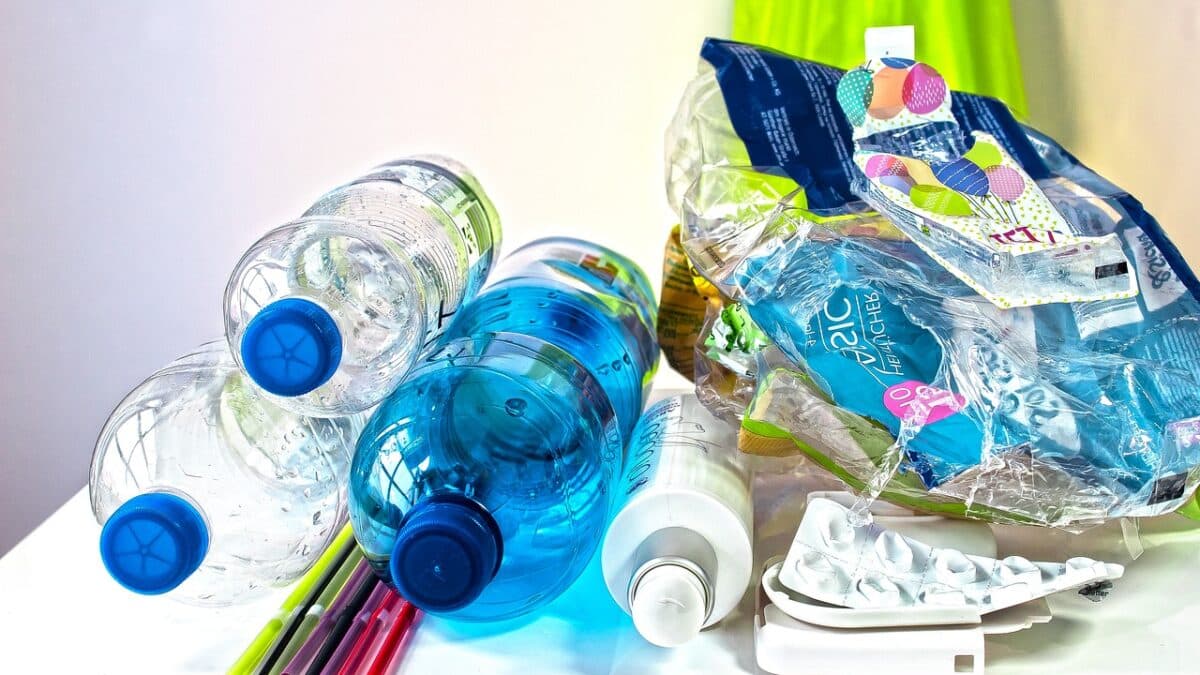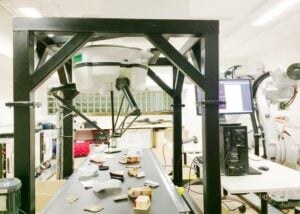
Can Recycling Robots Help Us Combat Waste More In The Future? 🤖
Recycling Robots 🤖: In the future, we would more than likely see more robots handling our recyclables. Is this the future that we should envision and aim to achieve? Many say it is and should be. Read this blog to learn more.
When we talk about recycling, we usually only associate it with the following: rubbish bags, colour-coded bins and recycling labels to determine where this type of waste should go. In the present, we would think that that is all there is to it. No improvements whatsoever will occur in the future. Everything is already perfect as it is, but nothing could be further from the truth.
>Download Now: Free PDF Business Owners Guide To Commingled Recycling Bin Services
Recycling robots have already made their way into Australia that can help solve the soft plastic problem we currently face, and we will discuss what you should know about it below. We have already discussed drones in waste management, but this is also a topic worth discussing. In addition, we should also talk about how robots are important to us not just today, but also in the future.
A bit about Waster
Let me share more information about Waster.
We here at Waster provide you with innovative solutions for your and your business’s waste management and recycling needs. Additionally, we provide flexible, 30-day contracts instead of the typical lock-in contracts, which proves to be better.
Click on the blue button to learn more.
Recycling robots: the latest development
The recycling process does not end when you throw it in its proper bin. Rather, the process has just begun once it makes its way to a recycling facility. The recyclable waste is transported in a truck. Different tools and machinery meet it once it reaches the facility, where it goes to a concrete floor and awaits its recycling.
Even with all of the often-complicated tools and machinery stationed there, humans still play a vital role in making sure of their smooth and buttery operations. Manager station their workers in different locations, depending on their role in the recycling process.
This might all change in the future, with humans being needed less and recycling robots doing most (or even all) of the work. The ‘movement’ has certainly started now, with an example here in Australia.
Removing soft plastics from general waste through recycling robots
One of the hottest and most recent news today is the recycling robot developed by the engineers at the University of Sydney. This development could potentially lead to the development of other recycling robots playing other vital roles in not just waste management, but even in the waste management industry as a whole.
They have developed a robot that can increase soft plastic waste recycling rates. Basically, the robot simply sorts the soft plastic out of its initial state: waste. Professor Blanca Vucetic, Professor Yonghui Li, Associate Professor Wanli Ouyang, Dr Wanchun Liu, and Senior Technical Officer Dawei Tan of the Faculty of Electrical and Information Engineering spearheaded this project. They worked with their industry partners as part of collaborative research that aimed to increase soft plastic recycling by creating, as mentioned a number of times already, recycling robots.

This helps tremendously in the soft plastic problem we have experienced in the past couple of years. Just in 2017-2018, 94 per cent of soft plastics made their way into landfills. Furthermore, recycling facilities cannot simply take them in because they are too complicated to work with and recycle.
Why we should bring in more robots in the future
Technology never ceases to amaze me and continues to improve daily. Scratch that – technology develops every second. One day, you might not have to do something you are accustomed to doing as robots would now be doing that said basic task.
With that said, having robots even now at their earlier stages of developments bring loads of benefits – beneficiaries, of course, includes the waste management and recycling industry. Below, we enumerate them to you:
1. Safety purposes
It is a no-brainer to consider the waste management and recycling industries as one of the most dangerous. Handling big tools and machinery, as well as working on waste, can compromise a human worker’s health and safety. Robots can greatly mitigate the dangers and save workers from having to the more dangerous tasks. Robots, depending on their build, can be implemented in almost any environment, regardless of the conditions. Never mind the hazardous conditions such as present toxic chemicals (e.g., working on cytotoxic waste) and the chokingly small gaps a worker should go through, recycling robots can easily do that now!
2. Accuracy
When a recycling facility has its own robot/s that can help with the workload, they should expect a more accurate result, thereby increasing work productivity. Robots are, of course, programmed carefully – with the power of Artificial Intelligence – to avoid making mistakes and produce high-quality end results. Whatever they want – fast or slow, with breaks or no breaks, operating through days off or even working on the same task repeatedly – robots can easily do.
3. Cutting costs in the long run
Recycling robots, believe it or not, can help save the waste management and recycling industry some money when owning them becomes the norm in the future. It might not be apparent at first but will surely show in the long run. First, having robots will cause fewer work-related injuries from happening. Additionally, they will need lesser materials. Finally, their performance will assure that the money used to buy it was well-spent.
Recycling robots: final thoughts
We at Waster certainly hope more improvements on the soft plastic recycling robot happen sooner than later. It can become a game-changer in the waste management and recycling industry in the near future.
Contact Waster today for your waste and recycling needs!
Are you a business in need of waste and recycling bin services?
If so, please call 1300 WASTER (1300 927 837). You can also email us at enquiries@waster.com.au if you have any further questions. Find the best deals in terms of waste and recycling pricing and services!
Leave a Reply Cancel reply

Product categories
Most Popular Posts
-
Commercial Waste Management Services: Reduce Waste Collection Costs! 🚍
-
Medical Waste Disposal: Everything You Need To Find Out In 2024! 💉
-
Rubbish Removal Sydney 2024: Better Bin Collections For Business ✅
-
Clinical Waste Disposal 2024: What To Know About Business Clinical Waste ⚕️
-
Secure Document Destruction 2024: All About Security Bins Shredding 🔒
-
Free Cardboard Recycling 2024: Can I Get Free Cardboard Collection? 📦
-
Confidential Paper Disposal Bins 2024: What You Need To Know About Shredding! 🔒
-
Recycling Bins Australia 2024: Recycling Can Boost Your Profits! ♲
-
Commercial Wheelie Bin Collection: What Businesses Need To Know In 2024 🗑️
-
Commingled Recycling 2024: Why Commingled Bin Is Key To Recycling 🍾













